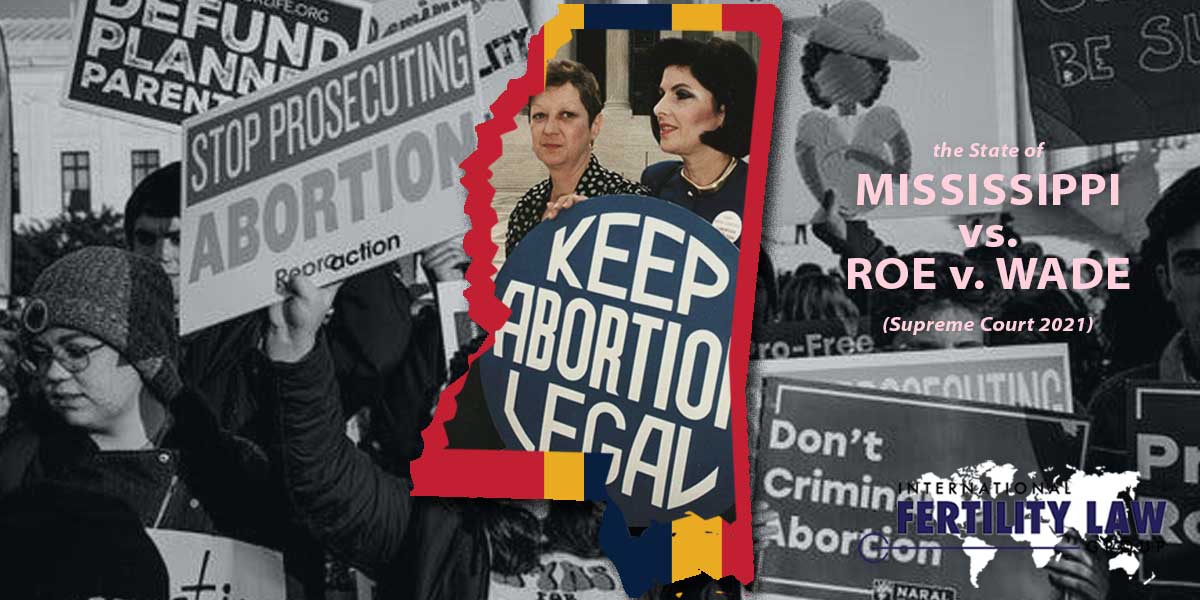
03 Aug 2021 Mississippi Asks U.S. Supreme Court to Overturn Roe v. Wade
Mississippi Attorney General Lynn Fitch filed a brief on July 22 asking the U.S. Supreme Court to overturn Roe v. Wade, the landmark 1973 decision establishing a woman’s right to an abortion prior to fetal viability outside the womb.
As reported by MississippiFreePress.org, Fitch’s brief was filed in Dobbs v. Jackson Women's Health Organization, a case challenging a 2018 Mississippi law banning abortion after 15 weeks—significantly earlier than the 24- to 28-week scientifically and judicially established range for fetal viability. On May 17, the Supreme Court announced it will hear the case after declining to hear it multiple times earlier—making it the first in a barrage of state legislative attempts to outlaw abortion and strip women of their right to choose to reach the nation’s high court.
“When it agreed to review the case, the Supreme Court said it would address a single question: ‘whether all pre-viability prohibitions on elective abortions are unconstitutional,’” The Wall Street Journal reported. As we wrote at the time, “In other words, with a single ruling, anticipated in spring or early summer 2022, the Court could either render all state laws that ban abortions prior to fetal viability unconstitutional… or uphold all of them.”
Mississippi Abortion Ban Purposely Crafted to Challenge Roe V. Wade
According to SCOTUSblog.com, when Mississippi passed the 15-week ban in 2018, the state’s only abortion provider, Jackson Women’s Health Organization, took the state to court, challenging its constitutionality. The U.S. Court of Appeals for the 5th Circuit sided with the clinic based on the Supreme Court’s prior rulings in Roe in 1973 and in Planned Parenthood v. Casey in 1992, both supporting a woman’s right to an abortion before the fetus could survive outside the womb, and prevented the law from taking effect.
The state took the case to the Supreme Court, asking the justices to decide whether all bans on pre-viability abortions are unconstitutional. The justices, which earlier declined to hear the case, finally agreed to take it into consideration, following the appointment of two more conservative justices—Brett Kavanaugh and Amy Coney Barrett—during the Trump presidency. The justices will hear the case upon their return from summer recess in the fall, and a decision is anticipated for spring or early summer 2022.
Advocates for reproductive rights are justifiably worried. The issue of fetal viability is at the core of a woman’s right to choose. A number of conservative state legislatures have passed so-called “heartbeat bills”—currently stayed by the courts—that ban abortion once a fetal heartbeat can be detected—often before a woman even knows she is pregnant. All of those laws could be immediately validated by a decision in the Mississippi case.
Despite all the loud conservative hype that seems to dominate the news cycle, polls show that Americans overwhelmingly support a woman’s right to choose. Laws that would endanger women’s health or punish those victimized by rape or incest are widely unpopular. Let’s hope the Supreme Court justices have a good read on the sentiments of the American public and the wisdom to protect women’s freedom to choose and the basic human right of bodily autonomy.

















